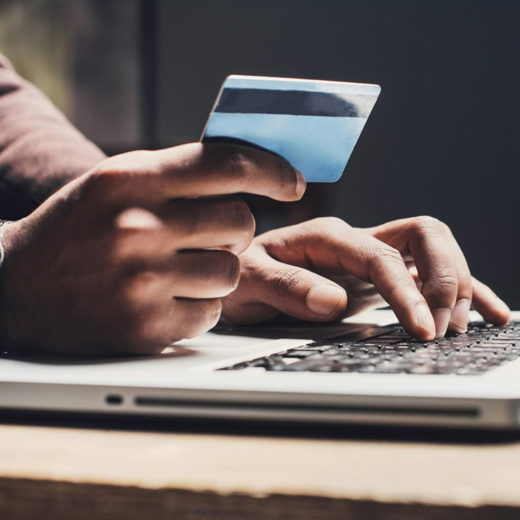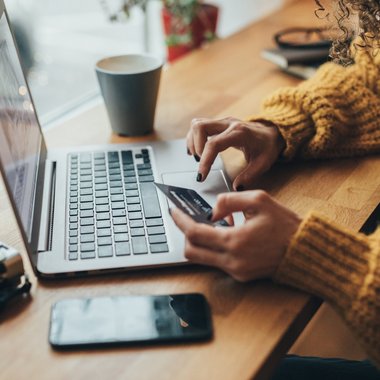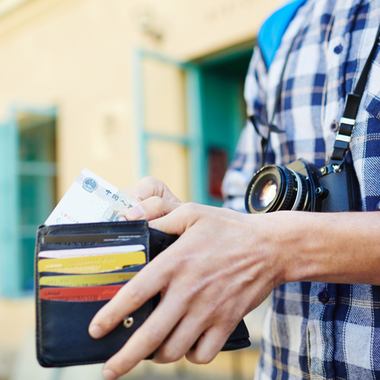
- Four minutes read
Are consumers using payment methods to track their spending more accurately?
Businesses have noticed a change in the way people are paying since the outbreak of COVID-19. Could a new focus on managing their finances be a reason? And if so, how can alternative payments methods make a difference in this area?
As we discovered when we asked consumers back in April, COVID-19 and the social distancing measures many countries have put into place to combat the virus has impacted the when, where, and importantly how they are spending money. The shift to eCommerce is one clear and potentially unsurprising consequence; many people (42%) are shopping online more frequently and a significant percentage (18%) of consumers have shopped online for the first time since the COVID-19 outbreak, and this is in turn if affecting the payments methods they use. But there are other reasons habits are changing.
The potential economic consequence of COVID-19
Another easily identifiable consequence of COVID-19 is the economic impact it is having on many people. Unemployment, lack of available freelance work, reduced wages, and reduced hours are all significantly hitting many consumers’ financial circumstances as businesses around the globe combat the negative effects of COVID-19 on their operations.
With less disposable income, many will inevitably reduce the overall amount of money they spend. But could it also impact how they choose to spend money? With some payments methods being easier than others to track spending, will this differentiator become key for consumers?
Businesses have already noticed a change in the way people are spending
Businesses believe that the answer is yes. In September we surveyed 1,100 online businesses in the UK, US, Canada, Italy, Bulgaria, Germany, and Austria on the impact COVID-19 is having on them, and they were clear that the pandemic is making a difference to the way consumers are making payments.
Three quarters of businesses told us that they have identified a change in consumer behaviour in their online checkout since the start of the outbreak. Of these changes, an increased use of digital wallets is the shift in payments methods that has been identified by the greatest percentage of businesses (40%). But other alternative payments methods, such as eCash (identified by 26% of businesses) are also growing in popularity.
Q: Have you noticed a change in the percentage of consumers that are paying with the following payment methods?
When asked why they think these changes are taking place, wanting a more secure payment method due to fraud concerns is the reason identified by the greatest percentage (40%) of businesses, and the economic impact of COVID-19 may be a contributing reason here, with consumers increasingly being concerned about financially coping if they were unable to recover the funds. But interestingly, the third most popular reason (37%) is that businesses think consumers are using payment methods to track their spending more accurately.
Q: Why do you think people are using different payment methods?
This is not necessarily a new phenomenon. We have seen the rise of digital banks in the past half a dozen years, and one of the main advantages of these financial services is the ability to maintain a better view of how and when you are spending money. But like many others trends, COVID-19 may have accelerated people wanting more control over the granular details of their spending habits.
Payments as an assessment of spending behaviour
So how do alternative payments fit into this consumer objective? Limiting spending by moving away from bank cards and especially credit cards is one method. Itemising purchases more clearly as per a digital wallet is another. Prepaid methods (i.e. a loadable source of funds where the amount credited cannot be exceeded) that prevents you from overspending or budgeting via a digital wallet is another.
In this instance a consumer may budget themselves e.g. £100 a month to spend on takeaway food; if they only use their prepaid payment method to pay for takeaways and only upload £100 at the beginning of each month they won’t exceed the limit they set themselves.
One other example of this would be using an eCash product as a form of “pocket money” or spending control between parents and children. We have all heard stories of parents giving their child access to their credit cards details through games that offer app-based purchases, and the child running up huge bills. By uploading cash to a prepaid card, or giving the child cash that they can upload to a prepaid card themselves, parents can be assured that the child won’t intentionally or accidentally overspend when gaming.
Moving forward
Overall, the impact of COVID-19 will continue to affect consumer spending for the foreseeable future and potentially permanently. Consumers have told us that they plan to spend more money online even when COVID-19 is no longer a factor in their lives, and that the criteria they use to decide which payments methods has changed. For businesses, expanding the options available in their online checkout to retain and acquire new customers will only grow in importance.
In Italy, 41% of businesses say they have seen an increase in the percentage of their customers that are paying using a digital wallet, and more businesses (46%) think consumers are changing the way they pay online because they want to track their spending more accurately than any other reason.
From now until the end of December, businesses in Italy that are new to Skrill and Skrill Quick Checkout can enable consumers to use multiple alternative payments methods including digital wallets in their online checkout free of charge for two months. For more information visit www.skrill.com




